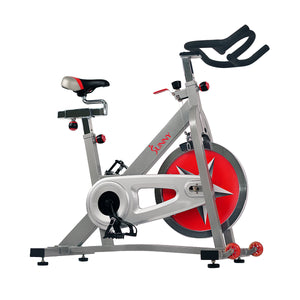An Intro to Supplements
Supplements are vitamins or minerals that you consume in their isolated state. For example, you may take a vitamin C supplement powder if you are not someone who consumes fruits like oranges or strawberries that contain vitamin C. Since there are certain amounts of vitamins and minerals your body need to function optimally, it is important that you maintain a regular number of vitamins and minerals in your daily diet. Consuming a multivitamin supplement might be a good strategy to avoid deficiencies in key nutrients that promote better health. Although, it should be noted that if you do consume adequate amounts of vitamins and minerals in your current diet from natural sources, consuming more vitamins and minerals than you need could be harmful. High levels of certain vitamins and minerals can be toxic. For example, taking too much Iron can cause nausea, abdominal pain and vomiting. Many of us could benefit from additional vitamins and minerals in your diet, but some should use caution if they are considering increasing their vitamin and mineral consumption significantly. More is not always better when it comes to supplement ingestion.
Can Supplements Improve My Workouts?
For any individual looking to improve their physical performance during a workout or physical activity, they must have an adequate amount of nutrients for the body to function properly. When these nutrient needs are not met, performance suffers. It’s also important to note that supplements should not be used as a substitute for a healthy nutrient-dense diet. Few supplements have been shown to improve workout performance when individuals’ nutrient levels are low. One of and if not the most popular supplements regular exercisers take are protein powders. Protein’s role as a macronutrient is to provide energy to the body and help with the building, maintaining, and repair of muscle tissue (1). Protein has been widely studied and has shown to be effective at improving physical performance when adequate levels are ingested. Caffeine is another substance regularly found in supplements to help improve exertion levels during physical activity. Numerous studies on the effects of caffeine have been done that show consistent results in the enhancement of endurance activities that last longer than a few seconds. Those who use caffeine should be aware that lethal doses are possible. As with any supplement, you should always consult with a medical professional before adding a supplement to your diet. For more information on the nutrient amounts you should be ingesting, check out our other articles on macronutrients for more in depth recommendations.
How to Add Supplements Into Your Diet
The best way to add supplements into your diet is to first understand what your body is lacking. Just like I stated above, if you are already consuming enough vitamins and minerals you should be careful not to increase your intake to potentially harmful levels. In fact, a diet that is nutrient dense and provides you with adequate vitamins and minerals will help you improve your physical performance to an optimal level. This means that supplements generally are not needed unless there is a deficiency in your diet. Another reason to think twice about taking supplements, is that some dietary supplements can interact negatively with medications you may be taking or cause them to be ineffective. Also, since dietary supplements don’t require a review by the FDA prior to being available on the market, it is possible that the supplement manufacturers maybe not know how their product is unsafe for certain individuals until after they take the product.
The Best Approach to Supplements
In my opinion, everyone should work on optimizing their diet with a variety of healthy foods. This will ensure that everyday you are consuming vital nutrients that will ensure that your body can perform its best during all aspects of your life, not just exercise. If you desire more information on supplements check out our podcast episode on supplements. If you are unsure whether or not your current diet is meeting the proper nutrients required for optimal health and physical performance, you can review the recommended dietary guidelines here.
(1) “Dietary Supplements for Exercise and Athletic Performance”. The National Institute of Health, Office of Dietary Supplements, 2019, ods.od.nih.gov/factsheets/ExerciseAndAthleticPerformance-HealthProfessional/. Accessed 18 March. 2020.
























Add Your Name & Email
Please enter your name and email to continue.We won’t display your email publicly.